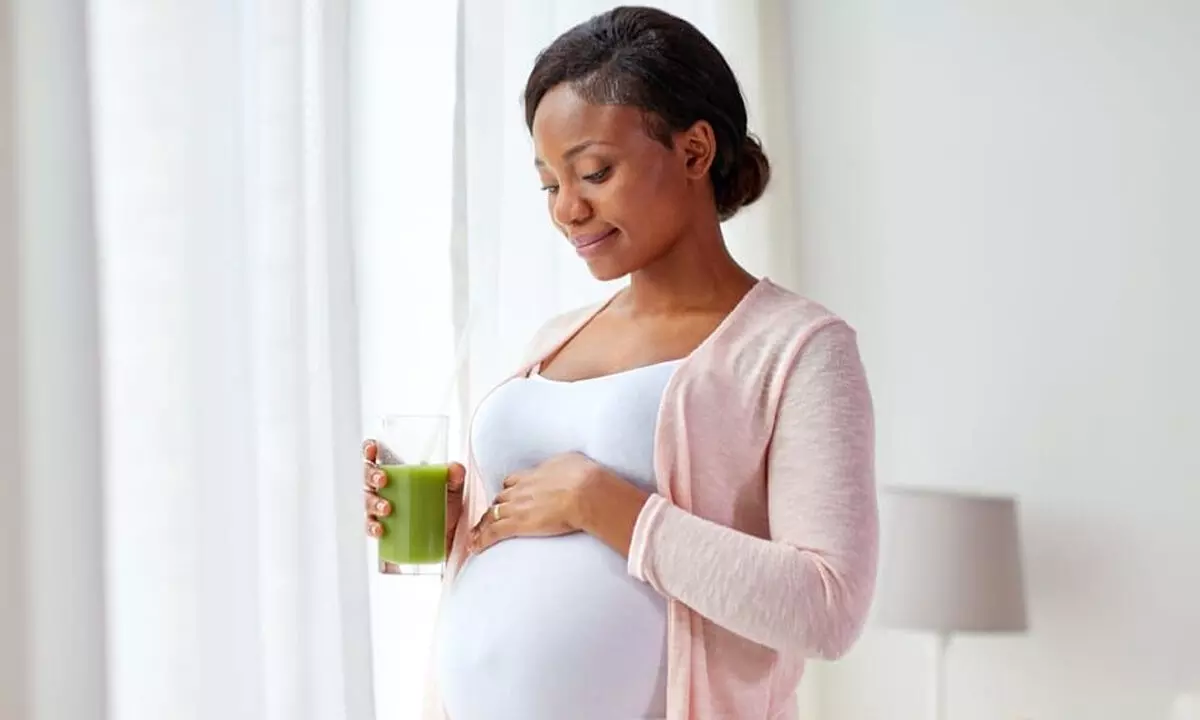Live
- Almonds are a key to faster muscle recovery after exercise: Study
- No govt faced so much criticism than Revanth-led Cong in 11 months: Kavitha
- Balineni signed SECI agreement, says Chevireddy
- Infant kidnapped from Niloufer Hospital rescued, cops arrest 3
- Sunny Leone reflects on challenges and preparations for ‘Shero’
- Hyderabad Saree Festival 2024 kicks off in a grand manner
- Speed up Veligonda project works, CPM urges govt
- 10 career opportunities with a public policy degree
- TG Medical Council cracks whip on fake doctors
- TTD takes up mammoth waste management exercise
Just In
Maternal cannabis exposure may pose low birth weight, stillbirth risks: Study


Higher levels of cannabis exposure over the course of pregnancy were associated with higher risks. While pregnant people may turn to cannabis to alleviate nausea or anxiety, other remedies have been proven to be safe
Women with exposure to cannabis during pregnancy are likely to have babies with low birth weight or face risk of stillbirth, according to a study of more than 9,000 pregnant people from across the US.
The study, published online in JAMA, showed that cannabis exposure was associated with a 1.5-fold increase in risk: 26 per cent of cannabis-exposed pregnant people experienced an unhealthy pregnancy outcome, versus 17 per cent of non-exposed pregnant people.
Higher levels of cannabis exposure over the course of pregnancy were associated with higher risks.
“Cannabis use is not safe,” said Robert Silver, Professor of obstetrics and gynaecology at University of Utah Health. “It increases the risk of pregnancy complications. If possible, you shouldn’t use cannabis during pregnancy. To gauge impacts on pregnancy, the researchers looked at an aggregate measure of negative health outcomes, including low birth weight, pregnancy-related high blood pressure, stillbirth, and medically indicated preterm birth.
Of these, the association between cannabis use and low birth weight was the strongest. All of these conditions have been linked to reduced function of the placenta, which supplies the growing baby with oxygen and nutrients, the researchers said. Previous studies in non-human primates have found that long-term cannabis exposure can interfere with blood supply to the placenta.
The correlation the team observed suggests that cannabis may disrupt the human placenta in a similar way. Silver added that the greater risk seen at higher levels of exposure is especially concerning given the high amount of THC found in newer cannabis products -- products that were barely starting to become available from 2010 to 2014. The health impacts of these more concentrated products remain largely unknown.
The researchers urge people who are considering using cannabis while pregnant to have an open conversation with their doctor. While pregnant people may turn to cannabis to alleviate nausea or anxiety, other remedies have been proven to be safe.
“There are many, many reasons people use cannabis,” Silver said. “But there may be alternative therapies that can help mitigate the symptoms.”
Silver emphasises that continued research on the health impacts of cannabis is urgently needed so that patients can make informed decisions about their health.

© 2024 Hyderabad Media House Limited/The Hans India. All rights reserved. Powered by hocalwire.com






